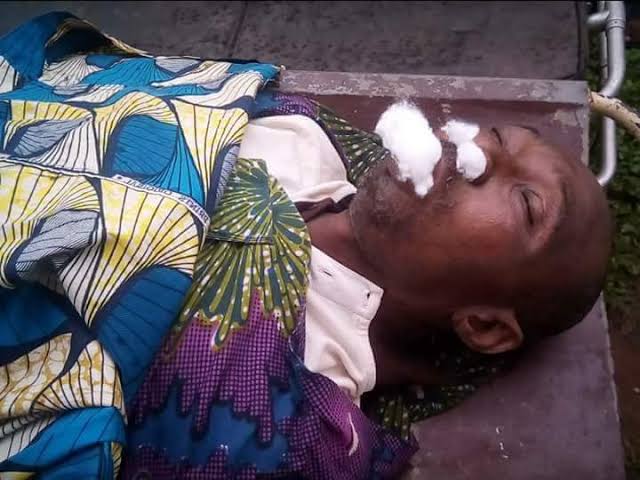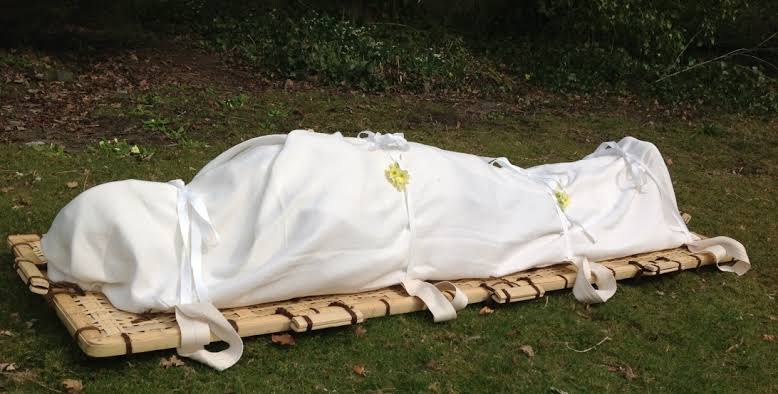The death of a loved one is a very solemn event, not just in Nigeria but everywhere in the world as well. The funeral procession in many Nigerian cultures, however, depends on how old the deceased was, their status in society, and how they died. This article will shed light on the funeral culture in Nigeria.
With the advent of Westernization and religion, however, many Nigerian funeral cultures have become relegated. However, before the introduction of Westernization to African culture, Nigeria had and still has some strong funeral cultures, some of which we will explore in this article.

READ ALSO: Hookup Culture in Nigeria
Funeral Culture in Nigeria
There are three major ethnic groups in Nigeria: Igbo, Yoruba, and Hausa. We would focus on the funeral cultures of these aforementioned ethnic groups.
1. The Igbo Funeral Culture
In Igbo society, the traditional burial rites involve not one, but two funerals. Their main intention is to safely escort the deceased from the realm of the living to the spirit world. Only after a successful second funeral can the deceased pass from the time of “ita okazi” – a period of torment, into a state of peace and contentment.
If the deceased were a traditionalist, the spirit of their ancestors, represented by masquerades, would undoubtedly be present to bless their journey home during the funeral ceremonies. The death of a young person, however, is considered a bad omen in many Nigerian cultures, and it is disrespectful for the parents to attend their child’s funeral. In this case, they hold a somber funeral.
Therefore, a person’s longevity frequently determines how loud their burial is.
When an elderly man or woman dies, the corpse is immediately stretched out on plantain leaves, sponged thoroughly, and rubbed with camwood dye to mark it as sacred. After the cleaning, they lay out the body in the obi – living room – with the feet facing the entryway.
If the deceased is a woman, she is often seated upright. Women are also carried on a stretcher back to their ancestral village for burial.
Once the body has been prepared for its transition from the physical realm into the spirit realm, the eldest son opens the door to the neighborhood with palm wine and kola nuts.
They then invite the ancestral spirits into the house through prayers and libations. The wake lasts all night until early the following day when they fire gunshots to inform the village of the death.
After this, they bury the body immediately in a grave in the living room with their most valued possessions.
That, however, is not the end of this funeral culture in Nigeria. A second one takes place a few months or perhaps a year later. This time, however, there is no grief, but feasting and celebration. They believe that after this, the spirit of the deceased can pass safely into the spirit world.
READ ALSO: Mental Health: Cultural Perceptions and How To Deal With It In Nigeria
2. The Yoruba Funeral Culture
Known as Isinku, the Yoruba funeral culture is one of flair and fanfare. This is if the deceased is of good old age.
If a person lives a good and long life, they celebrate their passing with dancing, merriness, and joy. However, with deaths involving children, they bury the deceased quickly without fanfare.
The announcement, also known as Ìtúfọ̀, is the first step in this funeral culture in Nigeria. The deceased is covered in white clothes so that mourners and comforters can meet them in a decent state.
The next stage is Ìtọ́jú òkú, which involves cleaning the corpse with soap and a sponge. Men’s corpses have their heads shaved, women get a new hairdo; they are clothed and then “packaged” in a variety of other clothes.
After this stage, we have Títẹ́ òkú ní ìtẹ́ ẹ̀yẹ, which is basically the lying in state. The deceased is laid on a mat, while all facial orifices – ear, mouth, and nose – are blocked with a thread.

They lay the body in the open while women in the family sing eulogies of the late person. The burial follows, which involves putting the corpse in the coffin with ẹ̀ko tútù (cold pap), wine, kola nut, and white kola nut, aṣọ (clothes), bàtà (shoes), ọ̀pá ìtìlẹ̀ (walking stick), ìlèkè (beads), ọkọ́ (hoe), àdá (swords) and ọ̀bẹ (knives). They also add money for the spirit to spend on the way to heaven.
The deceased’s first child pours the first grave soil onto the coffin in the grave. Then family and friends say their final farewell.
READ ALSO: Domestic Violence: 5 Signs you are a victim and helpful resources
3. Hausa Funeral Culture
For a very long time, the Hausas have followed Islamic principles. Therefore, it is pretty challenging to separate tradition from religion even when it comes to burial ceremonies.
When a person passes before sunset, they are buried before the sun sets. If the person kicks the bucket after sunset, he or she can then be buried the next day.
The deceased’s family observes customary Islamic washing ceremonies before the funeral. It is crucial that the individuals who wash the body are Muslims and of the same s3x as the deceased.
The washing adheres to extremely strict guidelines.
The washers start by placing the body on a high table and saying, “In the name of Allah”. They then carefully scrub the body until it is clean. After this, they dress the corpse.
If the corpse is male, they use three white sheets and four ropes, place his hands on his chest (right on left), and wrap each sheet, right side first, over the body. Then they tie two ropes just above the head and just below the feet and use the other two ropes to secure the sheets around the body.

If it’s a woman, they dress her in a loose-fitting, sleeveless dress, a head veil, and a loin cloth. All of these go underneath the same sheets and ropes used for men.
According to the Hausa custom, the feet go in first as they lay the corpse in the grave by the right side, and pointed towards Mecca. They then cover it first with bricks or wood before pouring sand.
Everyone present must pour three handfuls of sand into the grave, along with the words, “there you came from, there we shall return you, and there we shall raise you.”
The Hausa funeral ceremony does not have as much fanfare as the Igbo and Yoruba ceremonies.
SEE ALSO:
Conclusion
Some traditions retain elements of the old funeral rites, but most have fallen off. This is due to westernization and religion.
Elements like Praise singing, celebrating a good life, communal regard for the dead, and assistance alongside hospitality towards guests are still very key to this day in Igbo and Yoruba funeral cultures, but not so much for the Hausas.
FAQs About Funeral Culture in Nigeria
What is the importance of funerals in Nigerian culture?
In Nigerian culture, funerals are very important since they are seen as a way to honor and commemorate the life of the deceased. They give family and community people a chance to get together, assist the bereaved family, and pay respect to the deceased.
Are there specific customs for different ethnic groups?
Nigeria is immensely ethnically varied, with each ethnic group having its own distinct funeral rituals and customs. For instance, many ethnic groups have different funeral customs that are inspired by their cultural practices and beliefs, such as the Igbo, Yoruba, and Hausa.
How do religious beliefs influence Nigerian funerals?
Christian, Muslim, and indigenous African religious beliefs all have a big impact on how Nigerians conduct funerals. Religious doctrines and customs can have an impact on the style of ceremony, burial ceremonies, and the length of the grieving period.





